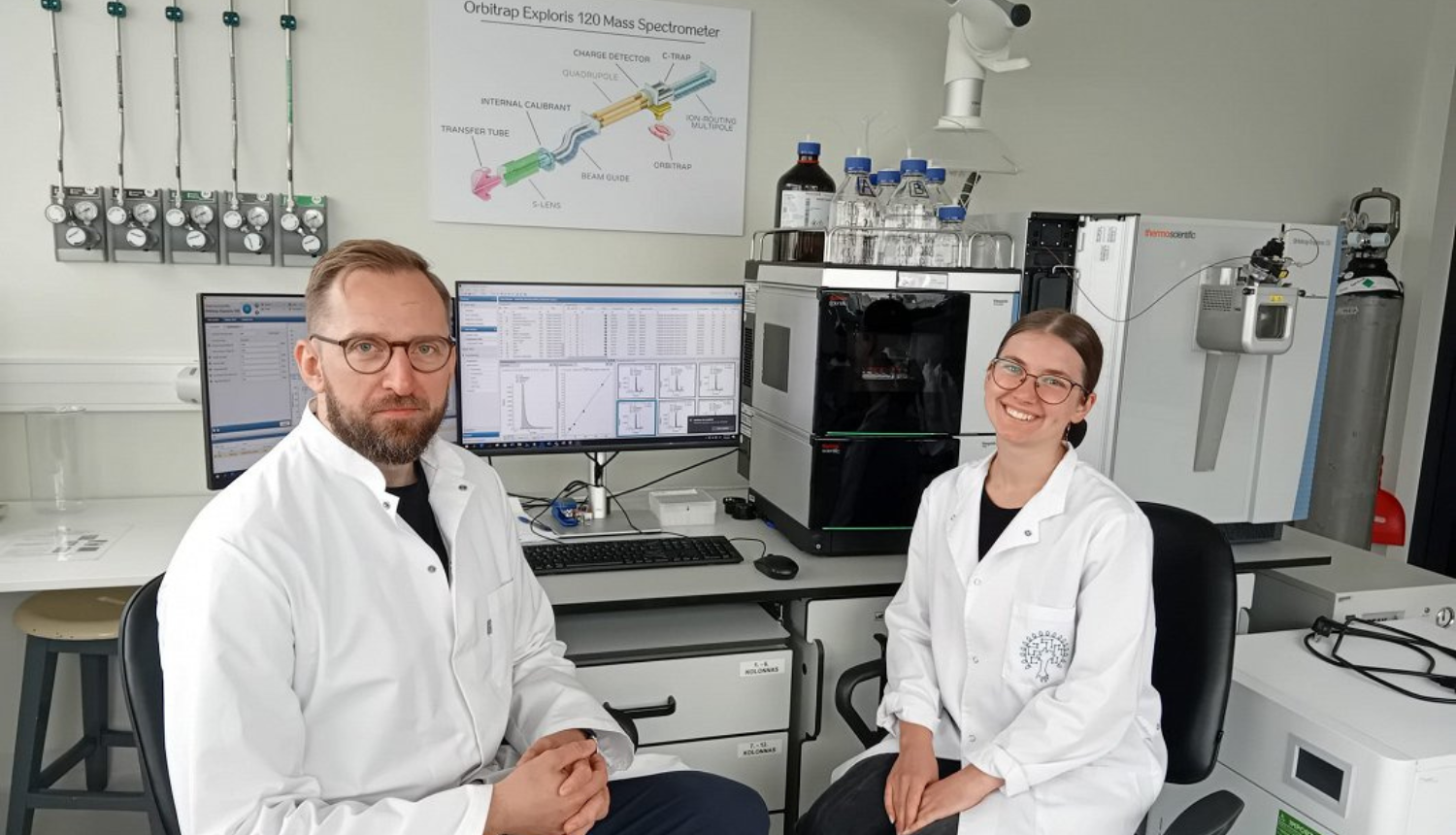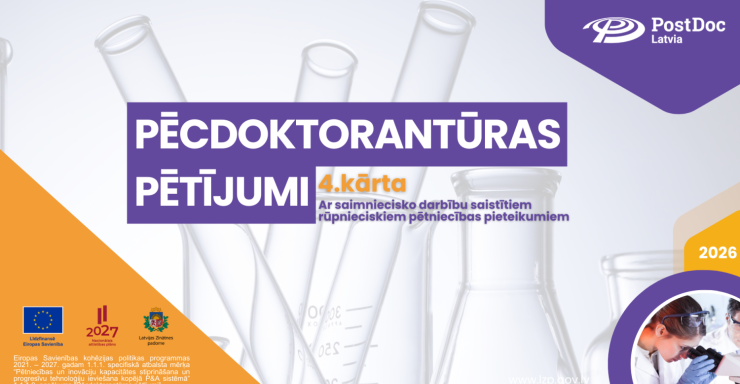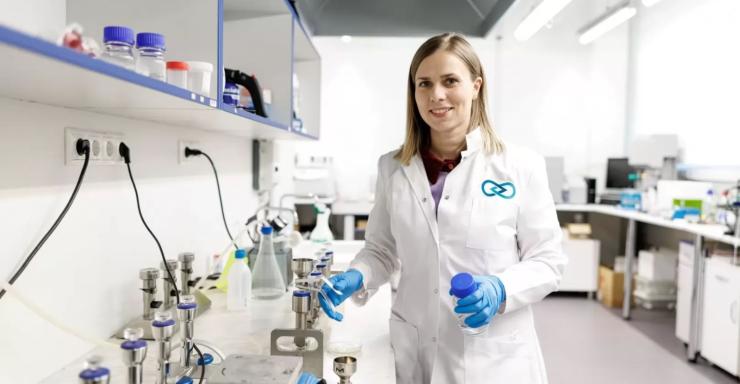Researchers from Riga Technical University (RTU) have established a startup called MetaboNet, which analyses various biological samples on behalf of research institutions and private companies.
MetaboNet was created in response to growing interest in RTU researchers’ expertise and equipment. Clients often request analysis to determine the types and quantities of metabolites in biological samples, mostly blood.
This type of information is crucial for metabolic research. According to Kristaps Kļaviņš, RTU lead researcher, associate professor, and co-founder of MetaboNet, metabolism is a general process occurring in every organism and reacts to various internal and external environmental factors - for example, metabolism changes under the influence of different diseases.
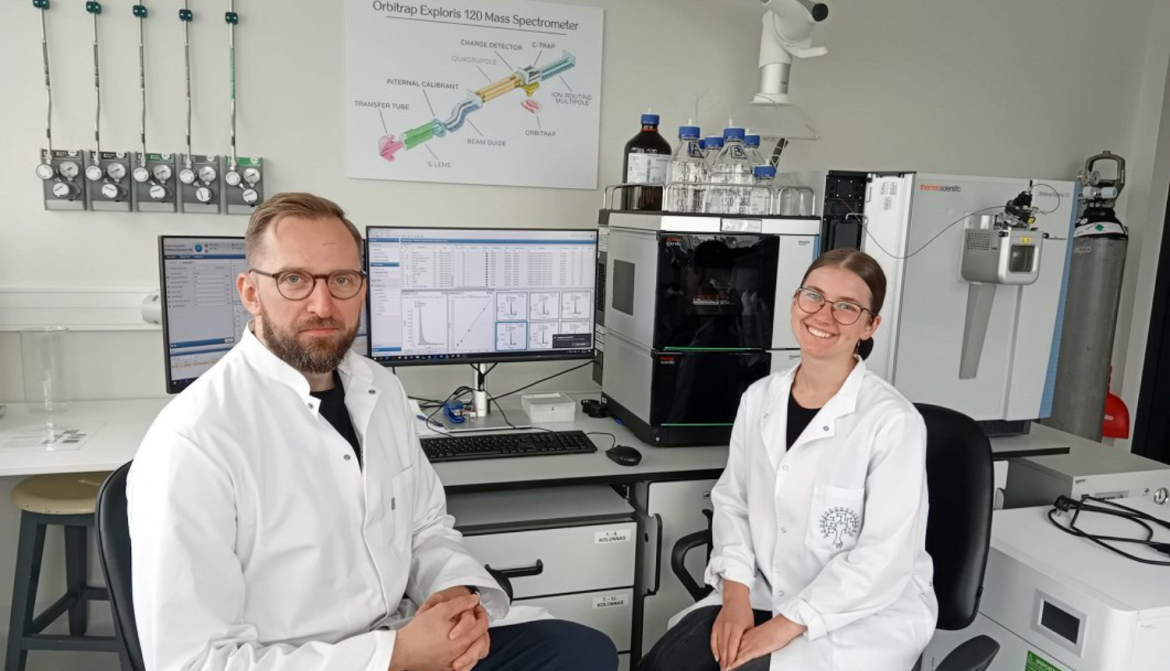
A metabolite is an intermediate or end product of metabolism.
MetaboNet’s clients include universities, biotech firms, and pharmaceutical companies that use the acquired data in their research.
For instance, MetaboNet collaborated with the Danish company Biogenity to study plant metabolism. Thanks to MetaboNet’s services, the research resulted in a high-level scientific publication in the Nature journal. Another partner is Cellbox Labs, which develops so-called organ-on-chip devices used to test drug substances or dietary supplements. Metabolism research is also valuable here.
In the lab where MetaboNet analyses samples, multiple instruments hum in the background. Kļaviņš explains: “Here we insert the sample. When we receive a blood sample, we extract 10 microliters, process it, and place it into a small 1-millilitre vial, which is then loaded into this device - a liquid chromatograph. From there, two microliters are taken for analysis in the chromatograph’s core, the column.”
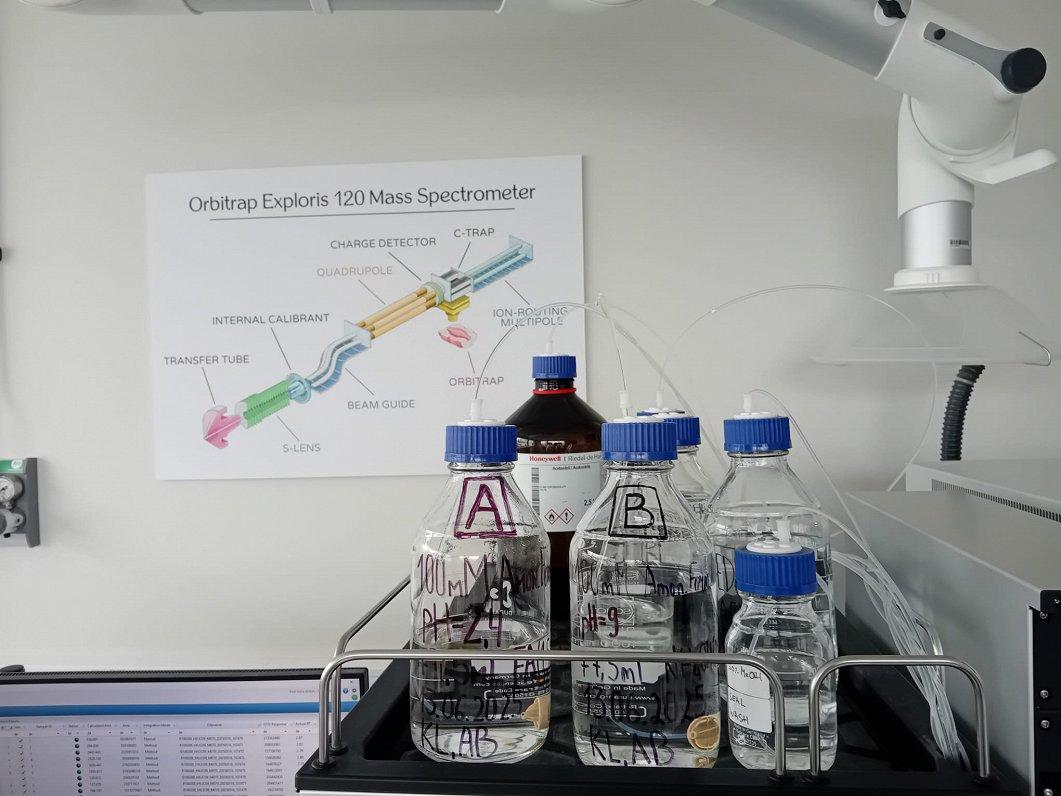
Project manager and RTU research assistant Annija Vaska adds: “From the sample, a needle extracts the compound, which then travels through tiny capillaries in the column together with the mobile phase and enters the mass spectrometer.”
The mobile phase consists of solvents that aid the analysis.
“This is the mass spectrometer, which measures mass with extremely high precision. We’re taught in school that hydrogen has a mass of one, but this instrument measures it as 1.0076. This means we can measure mass very accurately, helping us identify unknown substances or pinpoint specific compounds within complex mixtures,” Vaska notes.
Blood, for example, contains thousands of substances. The device shows which ones are present and in what concentration.
The spectrometer is connected to the liquid chromatograph, which separates complex mixtures into components.
Each sample is analysed over 10 to 15 minutes. Researchers can load the device with samples before the weekend and start analysing the gigabyte-sized datasets on Monday morning.
There are other companies analysing metabolites in biological samples, especially in Germany and the USA, but these are large corporations that only accept large-scale orders. MetaboNet, however, is willing to analyse even a single sample. Kļaviņš adds that while one sample often begins the discussion, clients typically return with larger orders. Moreover, larger companies tend to operate more slowly than MetaboNet.
Kļaviņš points out another feature that distinguishes MetaboNet from its competitors: “Because we are scientists ourselves and understand how scientists think, we don’t just approach this commercially. We engage in the entire process, from research planning to implementation. For instance, regarding blood samples: What type of blood should be taken? How much? From where? In the morning or evening? These details have a significant impact.”
The scientists at MetaboNet also assist with data interpretation. When asked why a startup is necessary and why a university can’t provide such services, Kļaviņš explains that a company is much more flexible than academic institutions. For example, it can quickly and temporarily hire a needed expert.
Kļaviņš entered the field of metabolism research by chance. He earned a master’s degree in chemistry from the University of Latvia, specialising in analytical chemistry with a focus on mass spectrometry. He pursued his PhD in Austria, joining a research group that used biotechnology to study metabolism, and earned a doctorate in biotechnology. He continued working in Austria, searching for blood biomarkers that could, for example, help detect Alzheimer’s or various cancers. He also worked in Vienna at one of the world’s leading molecular biology research centres. Upon returning to Latvia, he began working at the RTU Baltic Biomaterials Excellence Centre, where he further developed metabolism measurement techniques.
